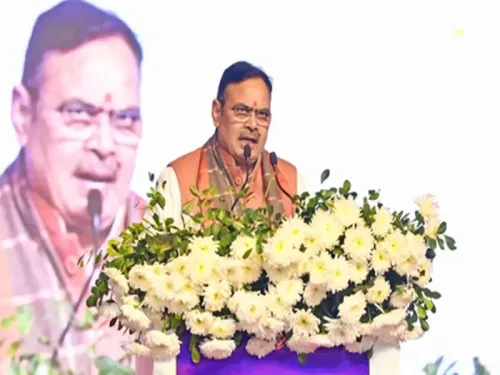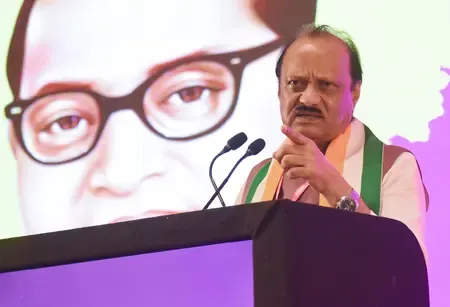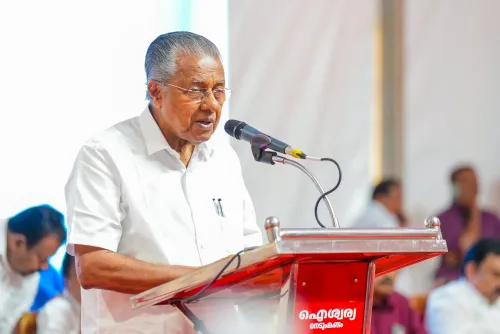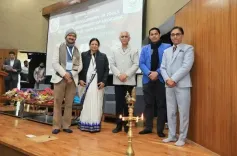Pahalgam Attack: Retired IAF Officer and Ex-J&K DGP Advocate Stringent Actions Against Pakistan
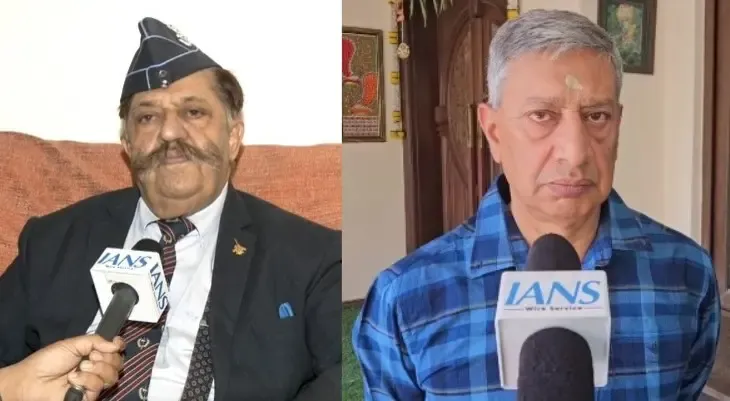
Synopsis
Key Takeaways
- Pahalgam attack resulted in 26 deaths.
- Retired IAF officer advocates for surgical strikes.
- Pakistan's support dwindling globally.
- Indus Waters Treaty deemed unfair.
- Indian Armed Forces prepared for escalation.
New Delhi, April 24 (NationPress) In response to the decisive actions taken by the Cabinet Committee on Security (CCS) following the tragic Pahalgam terror incident, retired Indian Air Force Wing Commander Praful Bakshi stated on Thursday that these measures were long overdue and should have been enforced four decades ago.
He emphasized that the assault, which resulted in 26 fatalities and numerous injuries, was directly orchestrated by the Pakistani Army.
In an interview with IANS, Wing Commander Bakshi remarked, "These measures should have been enacted 40 years ago. These are not even the most stringent actions possible. We need to execute surgical strikes and reclaim our illegally occupied territories from Pakistan. If we do not take such measures, they will not be deterred."
He pointed out that Pakistan has minimal global backing after consistently promoting terrorism. "No foreign nation stands with them except China, Bangladesh, and a few Islamic countries that covertly support them. Even the citizens of Pakistan will not endorse their government once they realize it is fostering terrorism," he added.
Describing Pakistan’s propaganda as divisive, Bakshi stated, "They tell their citizens, especially in Pakistan-occupied Kashmir (PoK), that they are superior due to their Muslim identity while we are Hindus. However, a significant portion of the PoK populace are converts; I am familiar with that region -- they originate from my own village."
He characterized the ongoing diplomatic rift as the "lowest point" in India-Pakistan relations.
"When embassies are nearly shut down, attaches are recalled, borders are sealed, visas revoked, and individuals are given 48 hours to evacuate -- it signifies that relations have reached a nadir," he stated.
Emphasizing Pakistan's reliance on India, Bakshi believes these sanctions will have a profound effect on them.
He affirmed that the Indian Armed Forces are fully equipped for any escalation. "The Indian military is always prepared and does not require additional preparation," he asserted.
Mirroring these sentiments, former Jammu and Kashmir DGP S.P. Vaid praised the suspension of the Indus Waters Treaty.
In an interview with IANS, Vaid noted, "These actions were essential to shake Pakistan. The Indus Waters Treaty, established in 1960, was heavily skewed. India conceded 70 percent of the river water to Pakistan as a goodwill gesture. However, Pakistan has never appreciated this kindness and viewed it as weakness."
Vaid highlighted a provision in the treaty that allows for withdrawal due to dissatisfaction and mentioned it is time to invoke it. "These measures are aimed at Pakistan’s deep state -- its Army and the ISI -- which persistently support cross-border terrorism," he explained.
Supporting the broader CCS response, he commented, "Whether it is closing the Attari border or reducing embassy personnel from 55 to 30, these actions will impose significant pressure on Pakistan. The message is unequivocal: Pakistan should be concerned now."


